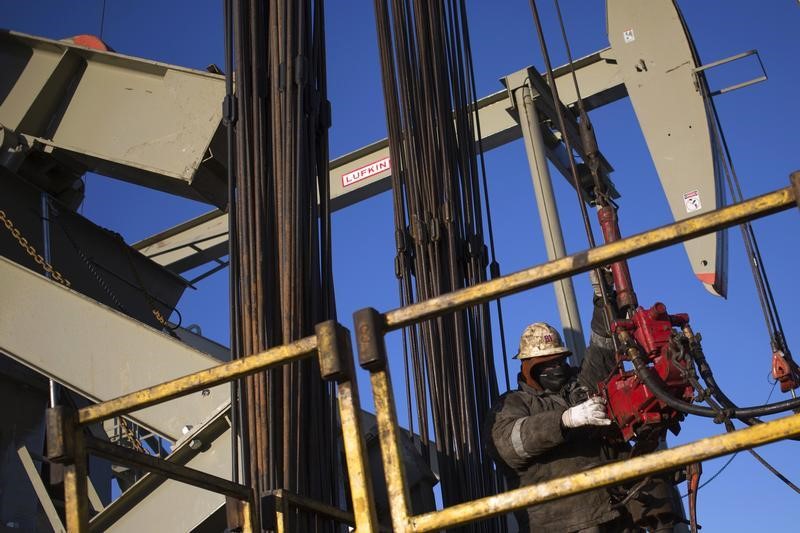By Karolin Schaps
LONDON (Reuters) - Plunging oil prices have increased the strain on the many small energy firms operating in the North Sea who were already facing diminishing returns from an area that once helped power the British economy.
With fields more mature and oil harder to find, heavyweights such as BP (L:BP) and Shell (L:RDSa) turned their attention elsewhere long ago, leaving smaller independent firms to explore the more remote areas.
As many as 133 companies are now active in the British part of the North Sea. However, a third of those companies are deemed by experts to be too small to finance big ticket projects and a fall of around 45 percent in oil prices since June has lessened the sector's appeal to big investors.
Efforts to find new oil and gas fields have slumped to the lowest level since exploration started in the 1970s because of reduced investment. That has sharply cut the amount of revenue the government can expect to take from the sector in taxation.
"Nothing less than radical change will prevent the premature demise of the basin, let alone maximise economic recovery," said Dave Blackwood, former head of BP's North Sea business, adding his voice to industry calls for tax cuts.
Britain's finance ministry has said it is working on a reform of its oil and gas tax policy but its drive to reduce the budget deficit will limit its ability to cut rates. An election next May only adds to the political uncertainty.
British oil companies pay a supplementary levy on top of production income tax, which will drop by 2 percentage points to 30 percent on Jan. 1. The oil industry is crying out for steeper cuts to help dampen the impact of surging costs.
"You've got to get the tax change right. If you put it up too much, and arguably that has happened, then it strangles activity," Mark Routh, chief executive at small North Sea player Independent Oil and Gas, told Reuters. RECEIPTS FALL
During the early 1980s, annual tax receipts to Margaret Thatcher's government peaked at 12 billion pounds when booming North Sea oil output coincided with high oil prices, four times the 3 billion pounds predicted for 2014.
Promised oil revenues were in part used to justify Scotland's independence movement which banked on oil to underwrite a historic break for the rest of Britain, thwarted in a referendum in September.
Instead, Brent crude prices fell as low as $58.5 a barrel last week and the major oil firms are shifting their focus to more promising new areas in south-east Asia, Africa and shale oil plays in North America.
While Britain's growing pool of small-scale firms, such as Parkmead (L:PMG), Hurricane Energy (L:HUR) and Infrastrata (L:INFAT), can be more nimble when it comes to adopting new technologies, many of the areas remaining to be explored are remote and therefore costly.
"If they don't have the money they can't fund activity," said Brian Nottage, general manager at oil and gas advisory Hannon Westwood.
An example is Atlantic Petroleum (CO:ATLA), which produces oil in the UK North Sea and has cut its exploration spending for 2015 by 75 percent, arguing it needed to save cash to fund its operating fields in the current oil price environment.
An increasing number of firms looking to enter new fields are now offering "farm-outs", allowing investors including rival companies, to take a stake in the new project.
"(But) not that many are successful, hence the problem that we see in exploration activity," Nottage said.
Of the 133 companies in the UK North Sea, more than a third have not developed reserves in the basin, meaning they cannot bank on any revenue from production in the short term.
In the longer term, the large number of small-scale players accessing the North Sea exploration market could lead to merger activity to create more robust businesses.
"The UK North Sea is definitely at an inflection point. That inflection point will either send it down or have the potential to make sure it remains as a basin for another 10-15 years," said Alison Baker, head of PwC's UK oil and gas practice.
(Additional reporting by Alistair Smout and Balazs Koranyi in Oslo; editing by Keith Weir)
